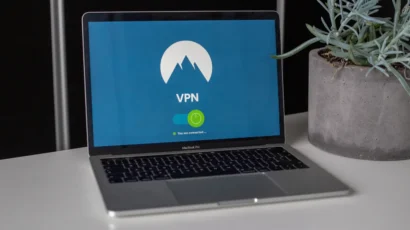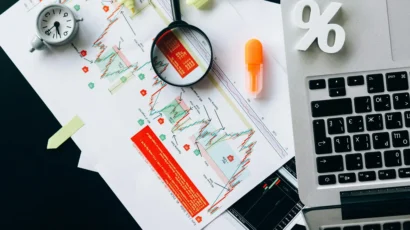Disclosure: Privacy Australia is community-supported. We may earn a commission when you buy a VPN through one of our links. Learn more.
Futures Trading: What It Is And How To Start

While gold had an early 2023 bull run, the giant Russia-Ukraine conflict sent oil prices everywhere flaming 🔥 to all-time record highs.
Are you watching all of this but are brand new to trading futures?
Maybe you want to know more about the market or you just want to learn how to trade better in 2023 & 2024… In any case, we cover the basics of futures markets for those totally new to the speculative game.
Futures: how to start. We cover the main approaches to learning, putting into practice, and using a futures trading strategy. All of that is covered in this tutorial.
Table of Contents:
- 📖 〽️ Futures Trading: How to start futures trading now!
- 📖 Why use futures (explained)
- 📖 Futures trades example…
- 📕 Detailed definition
- 💨 Factors that affect futures trading success
- 🌞 Bottom Line
- 📚 FAQs
Futures Trading: What it is and How to Start — in a Nutshell 📘
Investing in communities, skills, learning to grow food, and being resilient to panic and anxiety may pay off more than you imagine — and even make you a calmer, more stable investor. So cover your bases like budgeting.
Futures in a nutshell 🐿️ *chip chip*:
- ★ Futures are derivative contracts.
- ★ Use futures contracts to lock in a price and hedge against any price fluctuations. (At a predetermined price and future date.)
- ★ Buy commodities like coffee, financial indices like the S&P 500…
- ★ Even digital currencies like Bitcoin have futures.
- ★ Hazards include leverage and margins since it is less regulated than stocks.
〽️ Stock Markets for Beginners…
How to Start Futures Trading Now
To start trading futures, open up a self-directed broker account.
Continue reading, to learn how to start trading futures other than just a self-direct account. A trader could profit from international commodities on the futures markets in four distinct ways:
1. 💬 Self-Directed Futures Trading
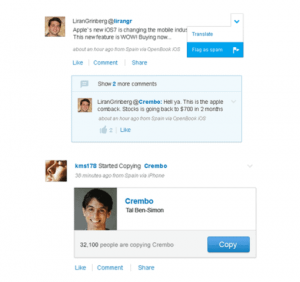
Copy trading is a popular tool that lets users mimic the trades of other users by seeing and purchasing the same assets. This is helpful for novice investors and may provide an alternative approach for more seasoned investors. Trading choices are ultimately responsible for their results, whether positive or negative.
Futures: How to Start Trading Futures via Self-Directed Accounts…
The vast majority of these exchanges take place “online”, or through an electronic futures trading platform accessible via the internet.
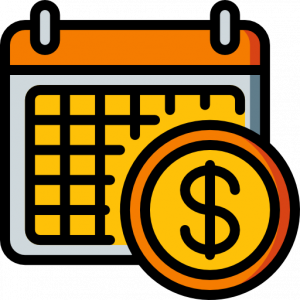
They either place their trades directly on a futures exchange or have their orders sent there through a futures commission merchant (FCM).
Self-directed trading entails doing nothing more than signing up with a futures broker and beginning to trade on a platform that the broker allows.
You can place trades using the trading platform, which you can use on your computer or mobile device.
2. 🏨 Learn and Start Future Trading with Broker-Assisted Trading
Discount brokers provide you with the cheapest entry into the market.
But by getting the advice of a professional human financial planner, you can get an ideal setup if you’re looking to build a lasting partnership.
With a broker-assisted account, the broker works with you to learn about your trading goals, do market analysis, and execute trades.
Developing Awareness…
However, be very careful on relying on any investment professional.
The landscape is changing rapidly and it pays to educate yourself on what the most cutting-edge thinkers in this space, like Tom Luongo, and all of the various independent analysts, are thinking rather than just giving the reigns away.
When you deal with a broker, they’ll be able to help you make trading choices based on things like macroeconomic fundamentals and technical analysis. In order to attain your desired returns, your adviser will tell you which markets to trade in and which tactics to use. Each futures trade is verified in your broker’s site and an email statement is sent to you.
Honesty is a very expensive gift, don’t expect it from cheap people. Warren Buffett (Source)
3. 📊 Managed Futures Trading: How to Start

Having your commodities investment handled is a potentially good idea if you are already using a money manager to handle the allocation and rebalancing of your assets in a managed fund, index fund, mutual fund, or similar investment vehicle.
As their name implies, commodity trading advisers (CTAs) are professional fund managers that focus their investments primarily on the global futures markets. CTAs seek ROI from price movements in a wide variety of markets, including currencies, stock indexes, bond futures, treasury futures, and other commodity markets.
There are around 150 different marketplaces throughout the world that trading advisers may take part in. The term “system diversity” refers to the practice of utilising many trading advisers, each of whom takes a somewhat different approach to the markets.
4. 🦿 Using Algorithms and Automation to Start Futures Trading
Expert programmers program computers with automated trading systems to execute a predetermined algorithmic strategy 24 hours a day.
In order to determine whether to go long or short in a particular market, automated systems are trained to observe patterns, examine data, and use predetermined mathematical and technical formulae to provide buy and sell signals.
Both hypothetical and actual performances are monitored in real-time. The greatest part is that you can subscribe, turn on, or turn off any system whenever you choose.
If you want to trade in the futures market but don’t have the time to keep track of the market, come up with a trading strategy, and put it into action, automation may be for you.
Why Use Futures to Start Trading: Explained

Futures trading offers various benefits, including increased leverage and reduced trading expenses.
While investors might benefit from the price fluctuations of underlying assets, corporations can hedge the costs of their raw material supply requirements to lock in current pricing.
Futures trading is not a good option for the inexperienced looking to 💰 grow savings because of the increased volatility risk and potential rapid loss of principal.
Due to leverage, which means using debt or borrowed money for trading, investors risk losing more money – profits are amplified, but so are losses.
In other words: To make the most of the openings in the market caused by both large-scale international events and smaller-scale local happenings.
Troubles in the Middle East? Deal in oil futures! A tumultuous economy? Futures trading in gold.
Supply chain issues in the Midwest? Participate in the futures market for grains like maize and wheat.
The United Kingdom shaken up by Brexit? Acquire and sell futures contracts on the British pound.
There Are Benefits and Drawbacks…
You can see the advantages and mayhem.
Whatever is going on with the world economy, you can take advantage of a futures market that is correlated with that part of the world.
Because futures traders don’t have to put up the full amount of capital to “purchase” or “sell”, this may be done in a capital-efficient way. If you’re interested in speculating, though, you simply need the necessary margin to do so—a small percentage of the whole contract price.
It is far more common for people to allow ego to stand in the way of learning. Ray Dalio (Source)
Start Futures Trading: Examples…
Supposing for the moment that the price of a single contract is $10k. However, the minimum deposit to trade such a contract is only $500 (5% of the contract).
If the market turns against you and your position starts incurring unrealized losses, you might end up losing more than your original margin requirement of $500.
And if the market keeps moving against you, the loss might exceed the value of your whole trading account, especially if the decline in the market value occurs quickly or is very severe. In that way, using leverage recklessly might have catastrophic consequences.
The same holds true if the market flips in your favour; you’ll see a far bigger increase in your profits because of the leverage you’re applying.
In the US, the CFTC and NFA are two federal regulatory bodies that keep an eye on the higher-risk market environment in which speculators operate.
There are many others in Australia and worldwide based on the region.
They may be different entities, but they work together to prevent financial fraud and keep “bad actors” off the market.
Check Your Service Uses Account Segregation…
In particular, both groups will check to see that your speculator (or hedger) funds are kept separate from other people’s money.
Importantly, this implies that your money won’t be mixed up with the clearing house’s general funds. Furthermore, client money is safe even if the clearing company (FCM) goes out of business or is liquidated. Since Futures and Commodities trading funds are not protected under US law, authorities must be very vigilant.
These stringent rules encourage institutional investors to put money into clearing houses, whose high trading volumes in turn provide the liquidity that allows speculators of all sizes to participate in the futures market.
From all corners of the globe, institutional players participate in the exchanges, which are open for business almost around-the-clock, five days a week.
- Start futures trading using a 🖱️ Popular Trading App
The most important thing to do if you find yourself in a hole is to stop digging. Warren Buffett (Source)
Futures Trading: Detailed Definition — What Exactly Are Futures Contracts? ☁️
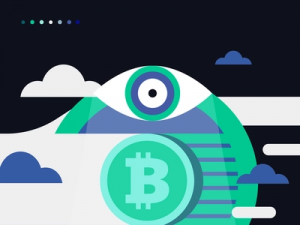
Now we’ve gotten this far, let’s part the clouds and redefine futures trading more deeply.
If you want to purchase or sell anything at a certain price at a certain time in the future, you may do so by entering into a futures contract with another party.
A futures contract is an agreement between two parties in which one party (“the buyer”) promises to buy a commodity at a future date and price, and the other party (“the seller”) agrees to sell the same commodity at the same price and date.
These contracts are always made on a regulated commodity futures market, and may be based on anything conventional, such as oil, gold, bonds, wheat, or the price of a stock index.
Some contracts (like index futures) can only be changed into cash equivalents, whereas others (including oil, wheat, and gold) may be physically delivered.
The three primary sorts of people that take part in futures markets are:
Producers: These might range from individual farmers to multinational corporations (e.g. gold miners). Their main goal is to make money off of the market by selling their goods. As a standard practise, traders would “lock in” a high selling price for their commodities by selling short futures in anticipation of a price decrease.
Investors in the commercial sector: Commonly, these are enormous factories that need to stock up on materials before they can begin production on anything else. So, they may purchase maize and wheat to make breakfast cereal. Their goal is to “lock in” a low purchase price by acquiring futures contracts as insurance against any future price increases.
Everyday speculators: A wide range of entities, from individual day traders to massive hedge funds, fall under this category. They are not interested in taking possession of the goods but rather making a profit via price speculation. The vast majority of the people that trade in the market are speculators, who keep the commodities markets flowing.
Overall, holding a futures contract is a long-term investment, but the goals, techniques, and expected returns of each participant vary widely. The futures market is the sum total of all the different market participants. In addition, it fosters a setting where people of different backgrounds have enough possibilities to thrive.
- Guide: ⭐ How to invest in the ASX 200
Starting Futures Trading: Factors That Affect Futures Success… ⭐
World Politics
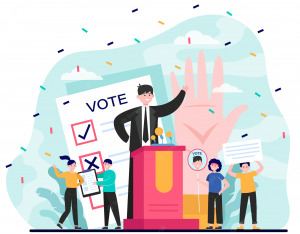
The markets may be profoundly and instantly impacted by geopolitical events. On the one hand, the market will always react to any occurrence that shocks investor confidence.
However, geopolitical shocks may also disrupt institutional algorithmic trading systems, leading to the instantaneous purchase or sale of a large number of futures contracts.
Many of these algos scour the web for articles and social media posts to use as inputs in their trading calculations. They have instantaneous access to opening and closing positions. Further, the sheer number of transactions might affect the market if the volume is big enough or if many systems are making the same deal.
It doesn’t matter whether you’re a technical or fundamental trader; geopolitical events have a habit of upsetting the market equilibrium, and so may have a significant effect on your trading account either way.
When I think about this, the oil market and the Middle East are two obvious examples. If you’re involved in the oil trading industry, regional events might be of interest.
The foreign exchange market is another sector that springs to mind. Not only has the British pound (GBP) been severely impacted by the recession problem towards the end of 2022, recovering in 2023, but so have other currencies like the euro and the Swiss franc. Currency markets react to the steady stream of “good news” and “bad news”.
The Ivory Coast’s important role in the cocoa market is the last illustration we’ll use here. The smallest fears of “revolution” would send the price soaring in this politically volatile region.
As we can see from the preceding cases, it makes little difference whether the news really represents changes in the underlying market structure or just market emotion. When combined, they have the power to affect the financial markets. Put yourself in a precarious situation.
One other thing to keep in mind is how liquid a contract is. Contracts with less market liquidity tend to fluctuate more dramatically.
A budget is people telling their money where to go instead of wondering where it went. Dave Ramsey (Source)
Economic Fluctuations ⚡
You have undoubtedly been familiar with the phrase “economic cycle” or “business cycle”. The expansion and contraction of the economy, often known as growth and recession, respectively, are referred to by both titles.
Interest rates, total employment, consumer expenditure, and gross domestic product are the pillars upon which the economic cycle rests.
You may use these indicators to speculate on where the economy is in its cycle at any particular moment. The phases of an economic cycle may be detected as a result of lagging economic data, even if changes in the economic cycle cannot be targeted or timed accurately.
For instance, if the AUD drops for two consecutive quarters, we say that the economy is in a recession. Looking back, we can see that the economy has entered a recessionary era, but forecasting when one would start is very difficult, if not impossible.
Seasonality
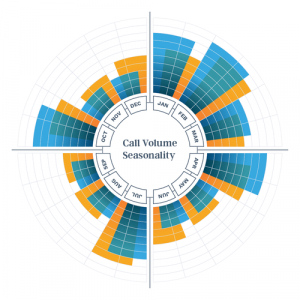
The term “seasonality” is used to describe the yearly cycles that may be expected in a certain commodity class. The price of commodities may be impacted as a result of shifts in supply and demand.
For example, heating oil costs tend to rise in the winter because of increased demand. Gasoline use also often rises in the summer as more people take trips and use their cars. Also, similar to the price of heating oil in the winter, summertime gasoline costs tend to rise.
The prices of several commodities fluctuate regularly throughout the year in accordance with annual cycles. When trading cyclically driven commodities, it might be helpful to have an understanding of such cycles and how to profit from their price swings.
Bottom Line 🌞
Futures trading is a lucrative option, but only after you’ve thoroughly researched the associated risks, costs, and commitments. Choosing a reliable broker and familiarising oneself with the different underlying assets of futures contracts are also crucial.
If you’re working with an online broker, or Robo-Advisors, they should have all the details posted on their site, but it’s always a good idea to double-check with them.
In conclusion, technical analysis is suggested for use in futures price speculation when relating to underlying asset values. Beginners should invest little at first, choose a trustworthy broker, and focus on an investment category with which they are already acquainted.
Opening An Account
The entry barrier in futures trading is low. Get yourself signed up with a broker that offers access to the marketplaces you’re interested in trading in.
A futures broker will want to know about your background in investing, your income, and your net worth. The answers to these questions will tell you how much of a risk the broker is willing to let you take on in terms of margin and positions.
In futures trading, there is no universally accepted charge or commission structure. Depending on the broker, you may get a wide range of services. Some do extensive research and provide helpful suggestions, while others offer little more than a price and a chart.
You may establish a “paper trading account” on several websites and practise with virtual funds. Before you risk your hard-earned cash in a genuine deal, you may hone your skills with “paper money”. This is a great method to test how well you understand the futures markets and the interplay between these factors and the leverage and fees you use.
You can practise trading on a demo account until you feel certain that you get the hang of it if you are just starting off.
A paper trading account may be used by anybody, from novices to seasoned investors, to try out a potential new investment approach. The analytic services of certain brokers may be made available to you in full in the paper trading account of others.
Futures Trading: What It Is And How To Start 📙 – FAQs
What are the most vital abilities for a futures trader to have?
The most crucial and fundamental aspect of trading is developing one’s “mental game”, or the self-control, perseverance, and tolerance needed to make profitable trades. Let’s say you’re interested in learning the ropes of day trading. A focus on completion is essential. In addition, you should aim towards attainable outcomes. Expecting to get wealthy suddenly is unrealistic.
Every day is a chance to take calculated risks and gain industry knowledge. You can’t let the need to “income” define how you spend every waking moment. In order to not just survive, but prosper, in your industry, you need to set objectives that span an extended period of time.
Those who approach the market with irrational emotions like fear and greed will be “filtered out” by the market. Those that approach trading seriously as a vocation and keep at it despite setbacks have the best chance of success.
What is the hardest part of futures trading?
While the aforementioned data provides the fundamental “rules of the game”, the actual difficulties lay in formulating a consistent, clear, and led strategy for trading on the futures commodities market.
What is futures trading? (In simple terms for beginners)
Futures markets, such as the Chicago Mercantile Exchange (CME), enable traders to buy and sell futures contracts; to participate, however, they must have a brokerage account that meets regulatory standards. Businesses and dealers that sign into futures contracts are committing to making a purchase or sale at a future date and price.
Companies will often utilise this strategy to secure the low commodity costs they require for manufacturing, allowing them to better predict and prepare for future price increases, while individual investors may use this strategy to make a profit from fluctuations in commodity prices.
To what extent does investing in the futures market pay off?
y using leverage, traders in the futures market may speculate on much larger sums of money with much smaller quantities of starting capital. Exposure to market pricing, tax savings, and reduced transaction costs are other advantages.
Is it hazardous to trade futures?
Since futures are leveraged, traders may initiate positions with a less amount of equity than would otherwise be required. As a result, futures trading becomes riskier, as investors stand to lose more than they initially spent if the deal goes against them, despite the tiny starting margin.
You Might Also Like:



